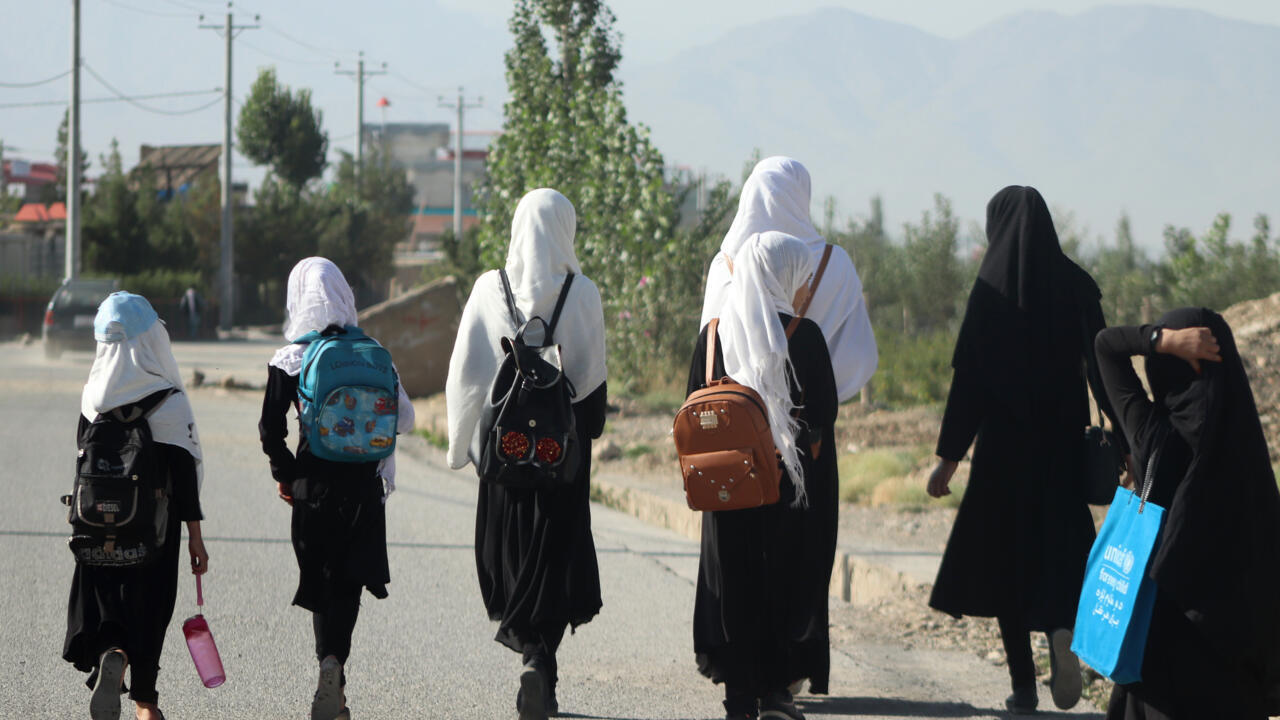
Issuance of: change:
Kabul (AFP) – The United Nations on Sunday called on the Taliban to reopen girls’ high schools across Afghanistan, calling a ban that began just a year ago “tragic and shameful”.
Weeks after the hardline Islamists seized power last August, they reopened boys’ high schools on September 18, but banned middle school girls from attending classes.
A few months later, on March 23, the Ministry of Education opened a secondary school for girls, but within hours Taliban leaders ordered it closed again.
Since then, more than one million teenage girls across the country have been deprived of education, according to the United Nations Assistance Mission in Afghanistan (UNAMA).
“This is a tragic, shameful and utterly avoidable anniversary,” UNAMA deputy Markus Potzel said in a statement.
“It will seriously damage the future of a generation of girls and Afghanistan itself,” he said, adding that the ban is unique in the world.
UN Secretary-General Antonio Guterres urged the Taliban to withdraw the ban.
“Lost knowledge and opportunities will never come back,” Guterres said on Twitter.
“Girls should go to school. The Taliban have to put them back in school.”
Some Taliban officials have said the ban is only temporary, but they have offered a flurry of excuses for the shutdown, from lack of funds to the time required to rebuild the syllabus in line with Islamic lines. rice field.
Earlier this month, Education Minister Noorula Munir told local media that this was a cultural issue as many rural people did not want their teenage daughters to attend school.
-“Year of Disappointment”-
Kawsar, a 12th grader who gave a fictitious name to protect his identity, said he was frustrated that his high school had been closed for a year.
“It was a dark year full of stress and disappointment,” she said.
“Education is our first right. Society needs female doctors and teachers. Boys alone cannot meet all society’s needs.”
Many conservative Afghan clerics within the Taliban are skeptical of modern education.
Authorities announced last month that they were increasing mandatory religious classes at public universities, but none of them will be removed from the current curriculum.
In response to the education minister’s comments in local media, school teacher Kainat said parents and families across Afghanistan are keen to educate their daughters.
“They want their daughters to achieve their goals. Every family wants their children, including their daughters, to serve the nation.”
“It is wrong for Afghans to not want their daughters to be educated.”
After seizing power amid a chaotic withdrawal of foreign forces on August 15 last year, the Taliban promised a more flexible version of the harsh Islamist regime in Afghanistan between 1996 and 2001. .
Within days, however, they began imposing strict restrictions on girls and women in order to follow Islam’s strict vision. effectively shut them out of public life.
Besides closing high schools for girls, the Taliban have banned women from holding many government jobs and have ordered them to cover themselves in public, preferably in full-body burqas.
Some girls’ high schools continue to open in provinces away from the central power base in Kabul and Kandahar, due to pressure from families and tribal leaders.
© 2022 AFP

